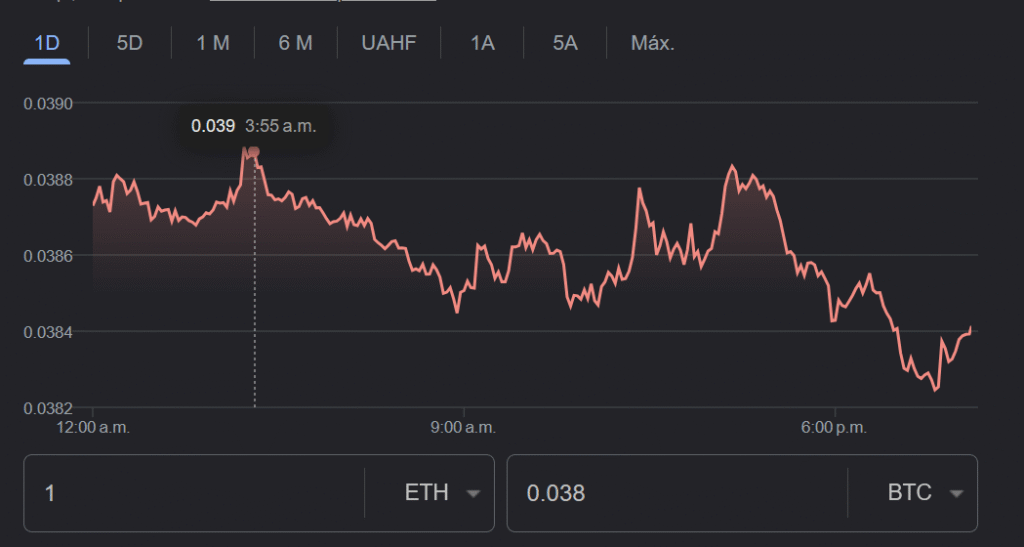Introduction
The debate of Ethereum vs Bitcoin is not a fight for the same spot: they are different tools. Bitcoin works as digital property and a store of value; Ethereum as a platform to build applications. Below, I outline differences, risks, and opportunities with arguments to help you decide based on your profile.
What is Bitcoin and Why is it Considered “Digital Property”?
Bitcoin was born in 2009 with the goal of being decentralized digital money. Its technical design —proof of work, 21 million limit and community consensus— grants it monetary predictability. Unlike most crypto projects, its protocol has resisted fundamental changes (e.g., the block size war). This immobility is why many argue Bitcoin fits the legal and practical definition of property rather than a security.
Arguments in Favor of Bitcoin
- Immutability: stable rules reduce risk of sudden changes in incentives or issuance.
- Clear scarcity: 21 million max — strong argument against inflationary policies.
- Proven decentralization: global network of miners and nodes makes capture by central actors difficult.
In my experience, Bitcoin’s resistance to protocol changes is the strongest proof of its condition as digital property.
What is Ethereum and Why is it Called a “Platform”?
Ethereum is a programmable environment: its value lies in the ability to execute smart contracts that support tokens, markets, decentralized financial applications, and of course, NFTs. This creates an economy where utility weighs as much or more than scarcity.
Arguments in Favor of Ethereum
- Flexibility and evolution: the network can adapt —e.g., transition to Proof of Stake— to improve energy efficiency and scalability.
- Vibrant ecosystem: all kinds of projects are built on Ethereum: DeFi, gaming, NFT marketplaces.
- Real utility: more daily use cases (programmable payments, fungible and non-fungible tokens, DAOs).
Risks and Criticism
The same flexibility brings risks: constant changes in monetary policy, ongoing upgrades, and the possible concentration of influence among developers or stakers. This feeds regulatory arguments that consider many tokens (and/or Ethereum itself) closer to securities than Bitcoin.

Key Differences Between Bitcoin and Ethereum
Here I synthesize the technical and purpose-driven differences with arguments beyond the headline:
| Aspect | Bitcoin | Ethereum |
|---|---|---|
| Purpose | Digital money, store of value | Platform for smart contracts and apps |
| Consensus | Proof of Work (historically) | Proof of Stake (post-merge) |
| Monetary policy | Predictable, 21M cap | Variable, subject to change |
| Use cases | Savings, remittances, settlement | NFTs, DeFi, DApps, tokens |
| Regulatory risk | Low (property) | Higher uncertainty (possible security) |
Deeper Arguments
Ethics and neutrality: if a network can be influenced by groups modifying its issuance or rules, its nature as money weakens. Bitcoin has resisted historical pressures to change its economy; Ethereum has chosen to evolve to enable more functionality. Both approaches are valid but involve trade-offs investors must know.
Investing in Bitcoin or Ethereum: Robust Analysis
Beyond the headline “Which should I buy?”, the useful approach is to articulate a strategy based on horizon and risk tolerance:
Conservative profile (horizon ≥5 years)
Prioritize Bitcoin: monetary predictability and the digital property argument reduce regulatory and protocol risks. Hold a portion of portfolio in BTC as a safe haven asset.
Balanced profile
Combine BTC with ETH: Bitcoin for store of value, Ethereum for innovation exposure (DeFi, NFTs, capital productivity). Rebalance periodically between both positions.
Aggressive profile
Heavier weight in ETH and Layer-2 projects / utility tokens. Accept risks of forks, policy changes, and regulation, aiming for potentially higher returns.
Risks to Manage
- Regulatory risk (SEC, local legislation).
- Technical risk (smart contract bugs, network upgrades).
- Market risk (high volatility).
My practical recommendation: define horizon, diversify, and use portfolio portions for speculation (ETH) and value preservation (BTC). In my personal experience, that mix reduces anxiety and captures opportunities.
Trends and Future: Will Ethereum Surpass Bitcoin?
Analyzing adoption forces, two plausible scenarios emerge:
- Coexistence: BTC as digital gold; ETH as Web3 infrastructure. This is the most likely and healthy hypothesis for the market.
- Partial substitution: in terms of economic activity (transactions, contract use) Ethereum could surpass Bitcoin, but not necessarily in trust or regulation.
Factors to watch: regulatory evolution (especially in the U.S.), scalability improvements (Layer-2 for ETH), and institutional use of Bitcoin as a treasury asset.
Frequently Asked Questions (FAQ)
Which is safer, Bitcoin or Ethereum?
From a protocol and regulatory perspective, Bitcoin tends to be safer; Ethereum has more risk vectors due to its complexity.
Can Ethereum surpass Bitcoin in market cap?
Possible in terms of capitalization or economic use, but Bitcoin’s institutional trust and legal classification give it structural advantage.
What factors should change for ETH to surpass BTC?
Greater regulatory clarity ruling out security classification for ETH, robust scalability improvements, and massive institutional adoption of applications built on Ethereum.
Conclusion
Ethereum and Bitcoin serve different roles. In my experience, the decision should not seek an “absolute winner” but define the role each asset plays in your portfolio and in the ecosystem: Bitcoin as the foundation of value, Ethereum as the engine of innovation.
If you want, I can turn this page into an AMP version, generate historical price charts to support the investment section, or prepare CTAs and blocks to capture leads.


